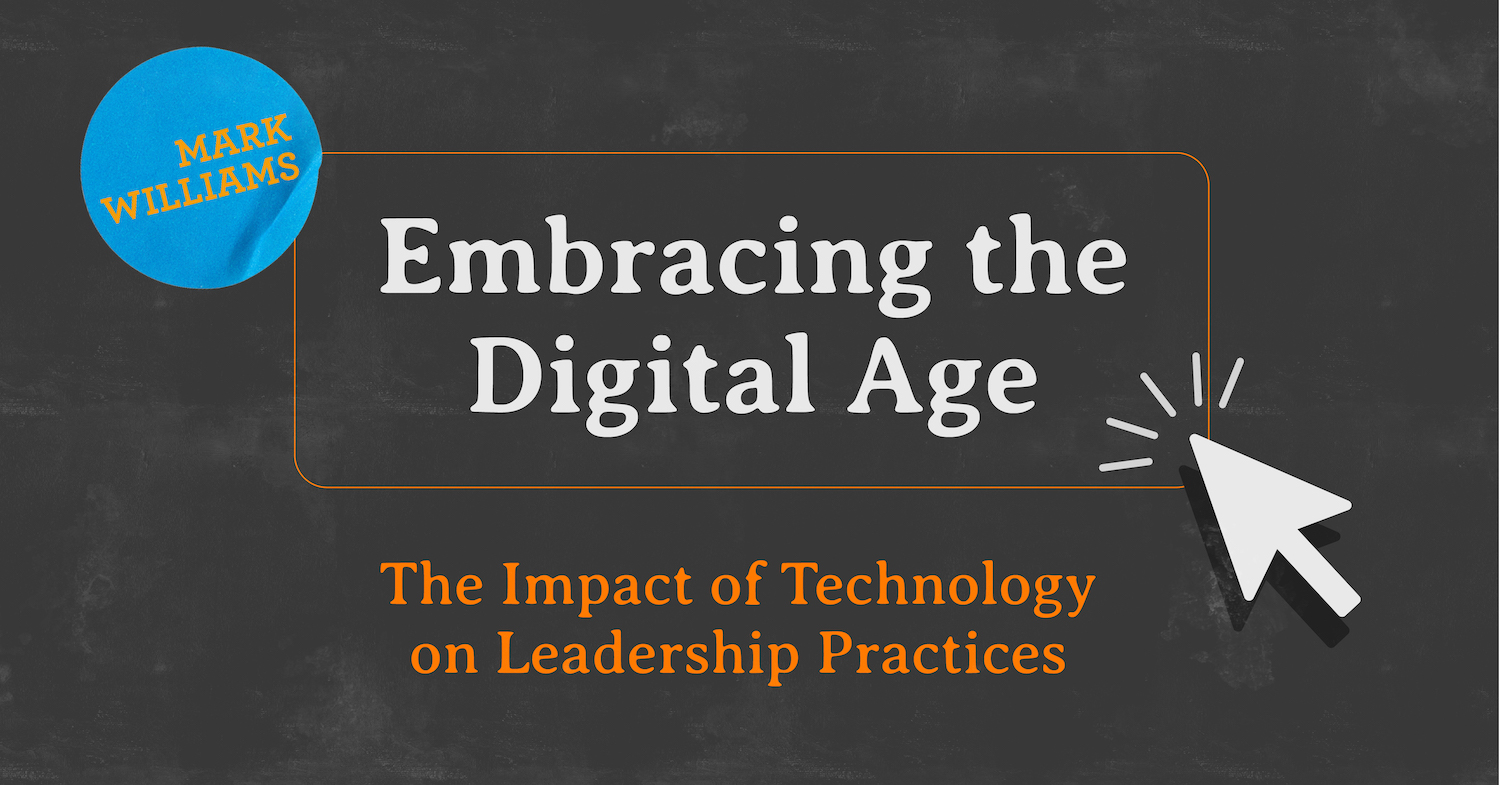Let’s face it, technology is involved in nearly all facets of life. It plays a vital role in various aspects of society, including the realm of leadership. Traditional leadership practices are undergoing a profound transformation as leaders navigate the complexities of the digital age. Let’s explore the multifaceted impact of technology on leadership practices and how it is reshaping the way leaders inspire, communicate and drive organizational success.
Communication Redefined:
Technology has revolutionized communication, tearing down geographical barriers and facilitating instantaneous information exchange. Leaders can now connect with their teams and stakeholders globally through video conferencing, instant messaging and collaborative platforms. This real-time communication not only enhances efficiency but also fosters a sense of unity among dispersed teams. Leaders can leverage these tools to maintain an open dialogue, gather feedback and ensure that everyone is aligned with the organizational goals.
Data-Driven Decision-Making:
The digital age has ushered in an era of data abundance. Leaders now have access to vast amounts of data that can provide valuable insights into organizational performance, market trends, and customer behavior. By harnessing analytics and artificial intelligence, leaders can make informed decisions, mitigate risks and identify opportunities for growth. Data-driven leadership empowers organizations to stay agile and responsive in an ever-changing business environment.
Adaptive Leadership in the Face of Change:
Technology is a catalyst for change and leaders must adapt to stay ahead. The ability to embrace and lead through change has become a critical leadership trait. Digital tools enable leaders to anticipate industry shifts, implement innovative solutions and guide their teams through transformational processes. Successful leaders in the digital age are those who view change as an opportunity for growth rather than a threat.
Remote Leadership and Flexible Work Arrangements:
Advancements in technology have given rise to the era of remote work. Leaders are now managing teams spread across different locations, time zones and even continents. Virtual collaboration tools, project management platforms, and cloud-based solutions have made it possible for teams to work seamlessly from anywhere. Effective remote leadership involves cultivating a culture of trust, providing the necessary resources and fostering strong communication channels to keep teams connected and motivated.
Enhancing Leadership Development:
Technology has democratized access to information and learning resources, transforming leadership development. Online courses, webinars and virtual mentorship programs enable leaders to continuously enhance their skills and stay abreast of industry trends. E-learning platforms offer personalized learning paths, allowing leaders to tailor their development journey to suit their specific needs. This democratization of knowledge contributes to creating a more diverse and skilled pool of leaders.
The impact of technology on leadership practices is profound and far-reaching. The digital age has brought about a paradigm shift in the way leaders lead, communicate and make decisions. Embracing these technological advancements is not only essential for organizational success but is also a testament to a leader’s ability to evolve and thrive in an ever-changing world. As we continue to advance, the intersection of technology and leadership will undoubtedly shape the future of business and inspire a new generation of innovative and adaptive leaders.
For more leadership insights- check out my podcast- Balance, Not Burnout available anywhere you listen to podcasts.

